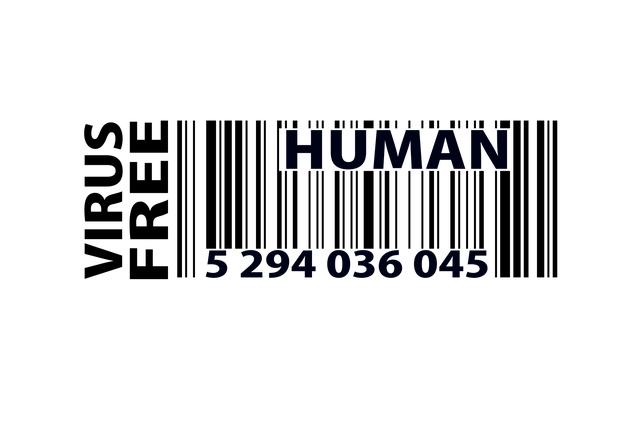The UK Code of Conduct and Ethics is a fundamental guideline for businesses, particularly those engaging in international markets. It emphasizes the importance of ethical integrity and responsible operations within the UK context, which must be followed by companies domestically and abroad. Accurate translation of this code into diverse languages is crucial for multinational corporations to communicate these ethical standards to a global audience, ensuring clarity and trust across cultures. Specialized translation services are essential for this task; they must possess exceptional linguistic skills alongside a deep understanding of cultural contexts to convey the subtleties and complexities of the UK Code effectively. These services provide not just linguistic accuracy but also adapt the language to align with local expectations and compliance norms, which is vital for maintaining legal compliance and ethical integrity worldwide. The best translation services utilize advanced technology and terminology management systems, supported by rigorous quality assurance processes including peer review and proofreading, to ensure that the translated content upholds the original document's high standards of professionalism and ethics. This ensures that the UK Code of Conduct and Ethics is accurately represented in all languages, promoting trust and transparency in international business practices.
Navigating the complexities of international business requires meticulous adherence to ethical standards, a principle exemplified by the UK Code of Conduct and Ethics. As companies expand globally, the need for precise professional translation services becomes paramount, ensuring that business conduct guidelines are accurately conveyed across diverse cultures and languages. This article delves into the essential aspects of translating these guidelines, highlighting their significance in cross-cultural interactions, the challenges of legal and regulatory compliance, and best practices for clarity and precision. Through a case study examining the effective translation of the UK Code of Conduct and Ethics for global operations, businesses can glean insights to enhance their cross-border communications and maintain integrity in a multifaceted marketplace.
- Understanding the UK Code of Conduct and Ethics: A Foundation for Business Integrity
- The Importance of Accurate Translation in Cross-Cultural Business Interactions
- Navigating Legal and Regulatory Compliance in Translating Business Guidelines
- Best Practices for Professional Translation Services: Ensuring Clarity and Precision
- Case Study: Effective UK Code of Conduct and Ethics Translation for Global Operations
Understanding the UK Code of Conduct and Ethics: A Foundation for Business Integrity

In the realm of international business, adherence to ethical standards is paramount for maintaining a reputation for integrity. The UK Code of Conduct and Ethics serves as a cornerstone for businesses aiming to operate with probity and responsibility. It outlines clear guidelines on fairness, honesty, and respect in all aspects of business activity. For companies operating within or expanding to the UK market, understanding and implementing these principles is not just a legal requirement but also a strategic advantage. Professionally translating the Code into various languages is crucial for multinational corporations to communicate these standards to employees, stakeholders, and partners worldwide. Utilizing specialized UK Code of Conduct and Ethics translation services ensures that the nuances and legal implications of ethical business conduct are accurately conveyed across different cultures, thereby reinforcing trust and reliability in global markets.
Navigating the intricacies of business ethics requires a deep comprehension of local regulations and international standards. The UK Code of Conduct and Ethics, when effectively translated into multiple languages, becomes a valuable tool for businesses seeking to align with global best practices. It is through this linguistic and cultural alignment that companies can foster an environment of transparency and accountability. Professionals specializing in UK Code of Conduct and Ethics translation services are adept at bridging the gap between languages and cultures, providing businesses with a clear and consistent message regarding their commitment to ethical conduct. This not only protects the company’s reputation but also opens doors for sustainable growth and ethical expansion in an increasingly interconnected world economy.
The Importance of Accurate Translation in Cross-Cultural Business Interactions

In cross-cultural business interactions, the accuracy of translation is paramount, especially when conveying complex documents such as the UK Code of Conduct and Ethics. The nuances of business conduct guidelines can vary significantly between cultures, and a precise translation ensures that the intended message is communicated effectively. Translation services specializing in this field must possess a deep understanding of both the source and target languages, as well as the cultural contexts in which these documents will be used. A mere literal translation often falls short, potentially leading to misunderstandings or misinterpretations of ethical standards, which could have serious legal and reputational consequences for businesses expanding internationally.
Choosing a reliable UK Code of Conduct and Ethics translation services is not just about linguistic proficiency; it encompasses cultural expertise and the ability to adapt language to meet local expectations and compliance requirements. Businesses must recognize that accurate translations go beyond words, encompassing tone, context, and cultural implications. This level of sophistication in translation can facilitate smoother negotiations, more effective communication, and a stronger foundation for international business partnerships, ultimately contributing to a company’s global success and ethical standing.
Navigating Legal and Regulatory Compliance in Translating Business Guidelines

Navigating the complexities of legal and regulatory compliance is a pivotal aspect when translating business conduct guidelines, especially when dealing with sensitive documents like the UK Code of Conduct and Ethics. Translation services must possess a deep understanding of both the source and target languages, as well as the intricacies of local laws that govern business practices. The translation process must be precise to accurately reflect the ethical standards and legal obligations outlined in the original document. This is crucial to ensure that the translated guidelines are not only linguistically correct but also legally compliant in the respective jurisdiction. For instance, when translating the UK Code of Conduct and Ethics for businesses operating internationally, translation services must consider the nuances of ethical frameworks across different countries. They must also stay abreast of any regulatory changes that could affect the interpretation and application of these guidelines within various legal systems.
In the realm of international business, adherence to ethical standards is non-negotiable, and this extends to all translations of business conduct guidelines. High-quality translation services specializing in such documents are adept at navigating these challenges, employing expert linguists with specialized knowledge in legal and regulatory compliance. These professionals ensure that the translated content aligns with both the letter and spirit of the original UK Code of Conduct and Ethics, while also being tailored to comply with the local laws and regulations of the target region. This meticulous approach is essential for maintaining the integrity of the business’s ethical stance and for avoiding legal pitfalls that could arise from misinterpretation or mistranslation.
Best Practices for Professional Translation Services: Ensuring Clarity and Precision

When it comes to translating business conduct guidelines, such as the UK Code of Conduct and Ethics, professional translation services must adhere to best practices that ensure clarity and precision. The first of these is selecting translators with expertise not only in language but also in the specific domain of business ethics and conduct. This specialized knowledge enables them to accurately convey the nuances and complexities inherent in such guidelines. Additionally, they should be well-versed in the cultural contexts of both the source and target languages to avoid misunderstandings that could arise from idiomatic expressions or cultural references.
Another critical best practice is the use of up-to-date translation technology that incorporates terminology management systems. These systems help maintain consistency in the translation by ensuring that key terms, which may be found in documents like the UK Code of Conduct and Ethics, are translated uniformly throughout the text. Furthermore, employing a multi-step quality assurance process involving peer review and proofreading further enhances the accuracy and reliability of the translated content. This diligent approach not only preserves the integrity of the original document but also ensures that the translated version upholds the same standards of professionalism and ethical conduct.
Case Study: Effective UK Code of Conduct and Ethics Translation for Global Operations

In the realm of global business, maintaining a consistent standard of conduct and ethics is paramount for operational integrity and legal compliance across different regions. The UK Code of Conduct and Ethics serves as a cornerstone for businesses seeking to uphold these standards within their operations. To effectively extend the reach and influence of this code to an international audience, professional translation services are indispensable. These services ensure that the nuances and legal implications of the original text are accurately conveyed in various languages, which is crucial for multinational corporations with a diverse workforce. A case study illustrating this is the successful translation of the UK Code of Conduct and Ethics for a leading UK-based company into several languages. This process involved meticulous attention to detail and a deep understanding of both the source and target languages, as well as the cultural contexts in which they are used. The outcome was not merely a linguistic transfer but a culturally adaptive translation that retained the essence and legal compliance of the original document, thereby facilitating effective global operations. This case underscores the importance of leveraging experienced translation services to navigate the complexities of international business conduct and ethics. It demonstrates how professional translation can bridge cultural divides, ensuring that ethical standards are universally understood and upheld, thereby fostering trust and transparency in all corporate dealings.
In conclusion, the meticulous translation of business conduct guidelines, such as the UK Code of Conduct and Ethics, is a cornerstone for maintaining integrity and fostering trust in global markets. Accurate translations by seasoned professionals not only align with legal and regulatory standards but also bridge cultural divides, ensuring that ethical practices are universally understood and upheld. For businesses seeking to navigate the complexities of international operations, leveraging expert translation services is key to success. By doing so, organisations can effectively communicate their values and expectations across diverse regions, thereby enhancing their reputation and fostering sustainable growth.



